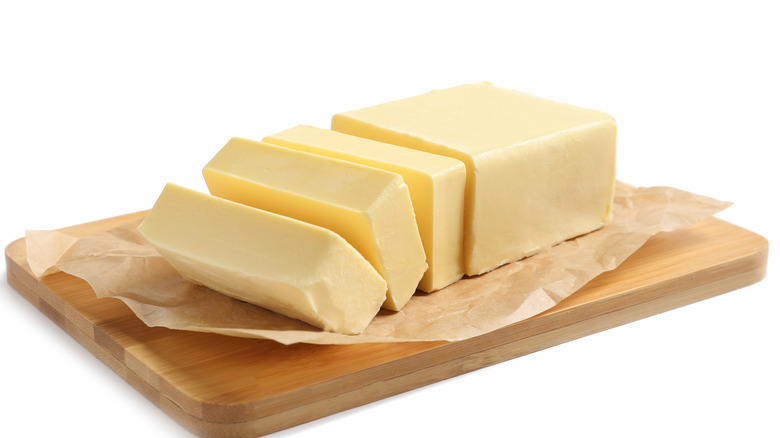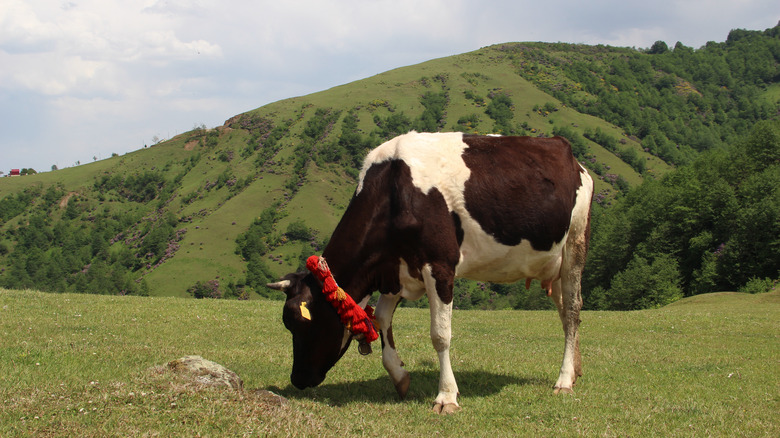Why You May Be Seeing A Butter Shortage At Grocery Stores
As the heat has risen across the globe, the natural environments around us have been more and more affected. California is in severe drought conditions that have made limited water usage and water theft a news topic. Heatwaves have also affected the weather all over the country, bringing record-high temperatures to seven states in the west during the massive June 2021 uptick in temperatures (via Climate.gov). These factors combine to create higher risks of wildfires, which then leads to problems with smoke conditions and poor air quality.
There are immediate effects on the people that live in the areas most affected, who must limit time outdoors due to the smoke or evacuate their homes when the fires come too close. This year is already shaping up to be a particularly severe wildfire season, with 43,438 fires so far in 2021, as compared to 38,767 fires for the same period in 2020 (via National Interagency Fire Center). Inevitably, these factors all add up to impact our lives in ways that might be shocking. A butter shortage in the western U.S. is among these surprising effects.
The data behind a potential butter shortage
The increasing wildfires and the smoke that fills the air while they burn, doesn't just directly impact humans. It affects animals in the area as well, including livestock on farms that we rely on for food and ingredients. Scientists have begun studying the ways increased wildfires have affected dairy cows, and the results are concerning. According to a study conducted by the University of Idaho, increased smoke conditions caused by wildfires appear to decrease milk production in dairy cows (via Food & Wine).
They found that the cows produced three pounds less of milk per day than usual during a three-month-long period that included a "major weeklong smoke event." Poor air quality and high levels of fine particulate matter from fires also correlated to higher incidents of udder infection and significant decreases in milk production (via Eat This, Not That!). As wildfires continue to blaze and create these air conditions, the cows will continue to be affected and produce less milk that may lead to shortages in dairy products like butter.

